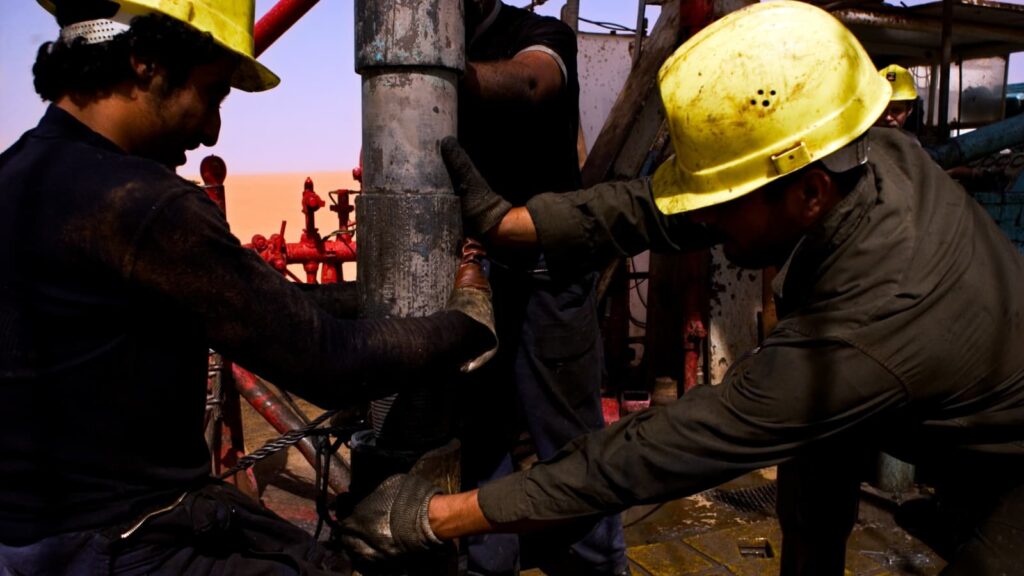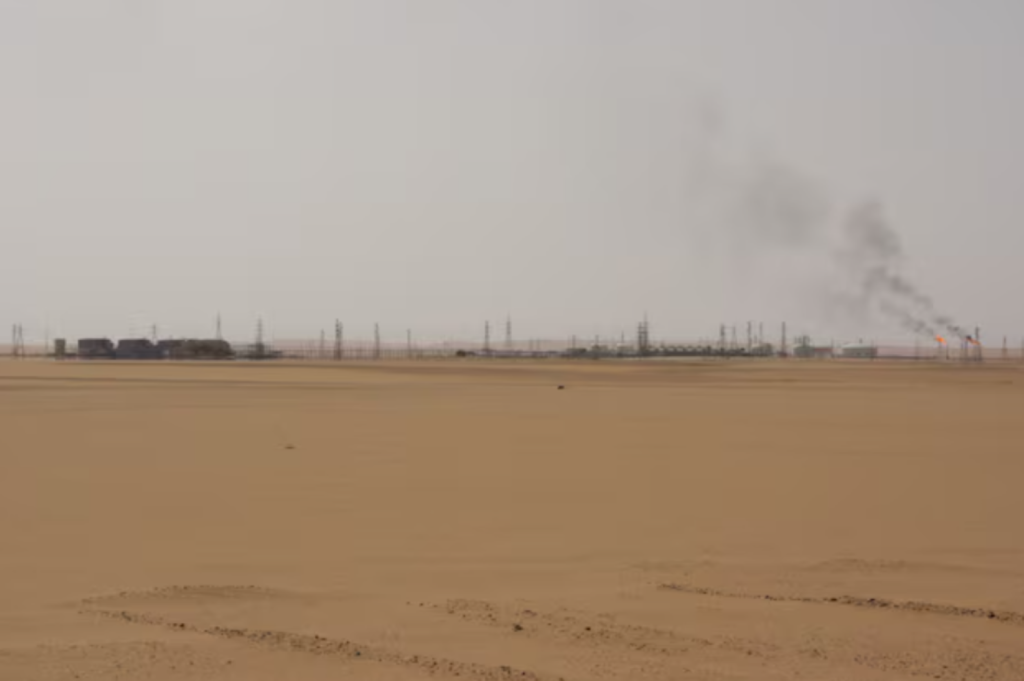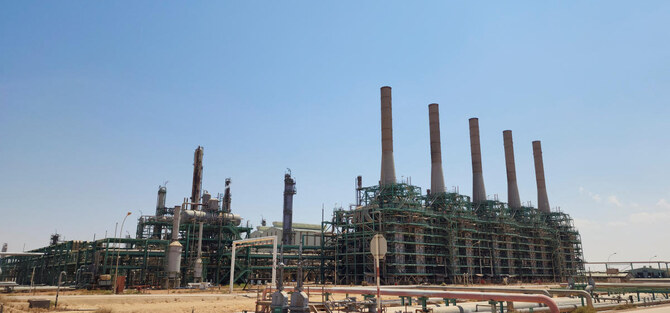Libya’s oil sector has been plunged into crisis as the Hariga oil export port ceased operations on Saturday due to insufficient crude supplies, according to two engineers at the terminal. This shutdown comes amid an escalating political dispute that has resulted in the closure of most of the country’s oilfields.

The National Oil Corporation (NOC) reported on Friday that recent oilfield closures have led to a staggering 63% loss in Libya’s total oil production. This development threatens to further destabilize the North African nation, which relies heavily on its oil sector for economic stability.
The root of the current crisis lies in a power struggle between rival eastern and western factions over control of the Central Bank of Libya. The eastern-based administration, which oversees oilfields accounting for nearly all of the country’s production, is demanding that western authorities reverse their decision to replace the central bank governor, Sadiq al-Kabir.
At the heart of the dispute is the Sarir oilfield, the primary supplier to the Hariga port, which has experienced a near-total shutdown. Under normal circumstances, Sarir produces approximately 209,000 barrels per day (bpd). In July, Libya’s total oil production stood at about 1.18 million bpd.

The NOC, responsible for managing Libya’s oil resources, emphasized that restarting the halted oilfields will incur significant costs and require extensive technical efforts. The corporation stated that the reasons for the closures are unrelated to its operations and that its teams are currently assessing the losses resulting from the shutdowns.
“The oil sector represents the backbone of the Libyan economy,” an NOC spokesperson said. “These repeated shutdowns have not only resulted in the loss of a large portion of our oil production but have also caused deterioration of the sector’s infrastructure and dissipated our efforts to increase production.”
The crisis has drawn international attention, with Turkey and Russia backing opposing factions in the conflict. The situation threatens to usher in a new period of instability for Libya, a major oil producer that has been divided between eastern and western factions since the overthrow of longtime leader Muammar Gaddafi in 2011.

Eastern factions, led by commander Khalifa Haftar’s Libyan National Army, have vowed to keep the country’s oil output shuttered until the internationally recognized Presidency Council and Government of National Unity in Tripoli reinstate Sadiq al-Kabir as central bank governor. Presidency Council chief Mohammed al-Menfi’s recent decision to dismiss Kabir was met with strong opposition from the eastern-based House of Representatives parliament.
The ongoing dispute highlights the complex interplay between Libya’s political landscape and its vital oil industry. Control over oil revenue remains the biggest prize for all factions in the country, making the position of central bank governor a key point of contention.
As the standoff continues, concerns are growing about the long-term impact on Libya’s oil infrastructure and its ability to quickly resume full production once the political crisis is resolved. The international community is closely watching the situation, as disruptions to Libya’s oil supply can have significant effects on global oil markets.
The NOC has called for an immediate resolution to the political dispute, warning that prolonged shutdowns could have severe consequences for the country’s economy and future oil production capacity. As negotiations between rival factions continue, the fate of Libya’s oil industry hangs in the balance, with potential repercussions for both the nation’s stability and the global energy market.
REUTERS



